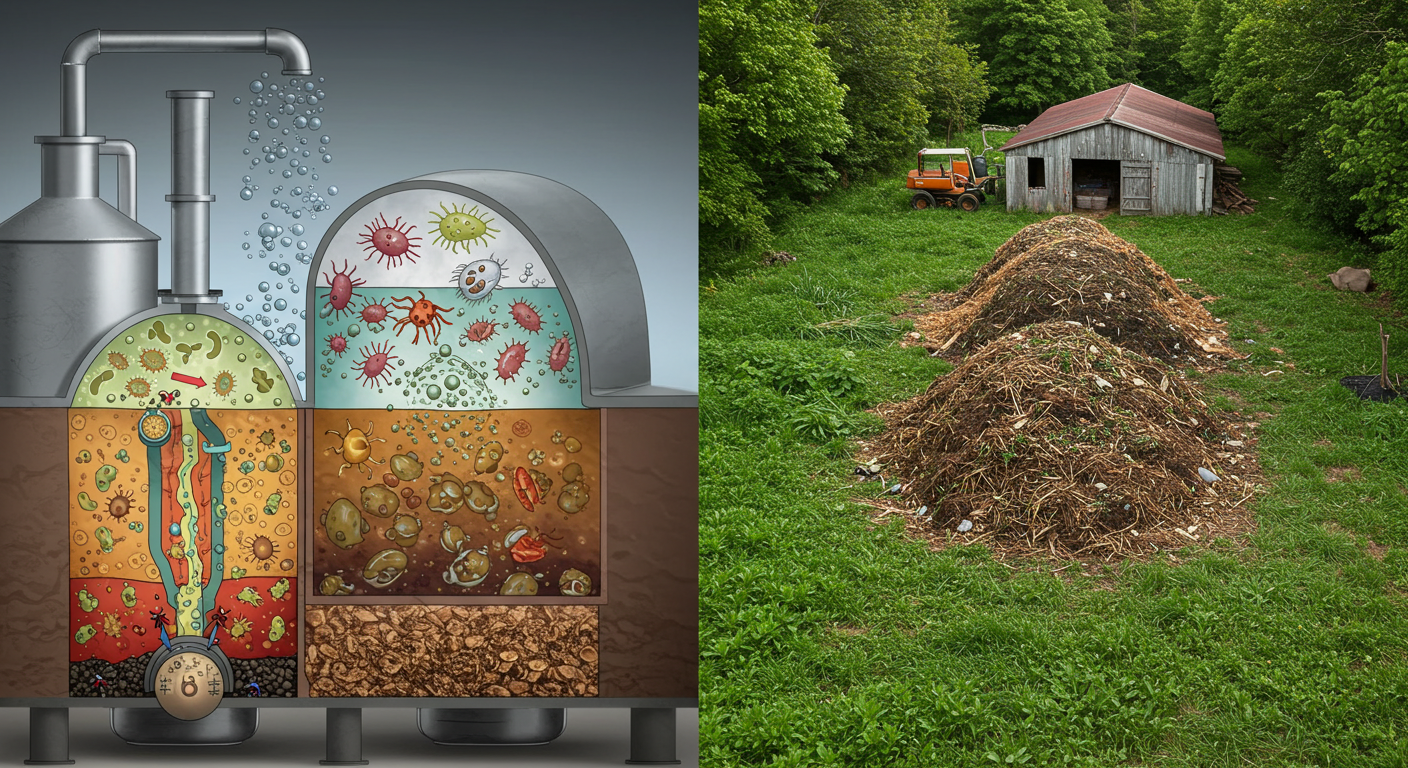Introduction to the Power of Food Blogging
In recent years, food blogging has emerged as a formidable force in the culinary landscape. Driven by the proliferation of social media and the increasing demand for authentic content, food bloggers have become essential sources of inspiration and information for many consumers. This rise in influence can largely be attributed to the bloggers’ ability to humanize the food experience, sharing personal stories and creative recipes while emphasizing the freshness and quality of ingredients. As a result, their platforms are not only about food but also about lifestyle, culture, and sustainability.
The impact of food bloggers extends beyond mere recipe sharing; they serve as trusted authorities on culinary matters. Consumers often turn to these bloggers for insights into local produce, meal preparation, and even food safety. This trust positions food bloggers as valuable partners for farms looking to promote their produce effectively. Collaborating with local food bloggers provides farms with a unique opportunity to reach wider audiences and engage potential customers in more meaningful ways.
Moreover, partnerships with food bloggers can lead to increased brand visibility and credibility for farms. When a blogger features a farm’s produce in their content, it not only lends authenticity to the partnership but also introduces product offerings to an audience that values transparency and quality. By showcasing how local produce can be incorporated into various dishes, bloggers can help consumers discover new ways to enjoy fresh ingredients while supporting sustainable agriculture.
The benefits of teaming up with food bloggers extend beyond promotional advantages; such collaborations foster a strong sense of community. Engaging with these local influencers allows farms to connect with consumers on a personal level, transforming the transactional nature of food purchasing into a more relational experience. In the following sections, we will explore the various strategies for effectively building these partnerships to maximize the potential benefits for both bloggers and farms alike.
Identifying the Right Local Food Bloggers
Finding the right local food bloggers is a crucial step in promoting your farm produce effectively. The ideal bloggers will not only resonate with your farm’s values but also engage with an audience that aligns with your target demographic. Start by conducting thorough research to identify potential bloggers in your area who focus on food, farming, and sustainable practices. Utilize search engines and social media platforms to gather a list of bloggers who actively publish content related to local cuisine and agriculture.
Next, assess the content shared by these bloggers. Pay close attention to the themes, topics, and overall messaging of their posts. Look for a consistent emphasis on local sourcing, organic produce, and farm-fresh ingredients—all of which may align well with your farm’s mission. A blogger who values transparency in food sourcing is more likely to resonate positively with your audience, thereby enhancing the promotion of your products.
Engagement rates are another key criterion to consider. A blogger with a large number of followers may not necessarily guarantee high engagement levels. Examine the comments, shares, and interactions on their posts. Blogs that foster meaningful discussions and receive feedback from their readers demonstrate an engaged audience, which may serve as a valuable platform to showcase your farm produce.
Moreover, take note of how bloggers interact with their communities. A local food blogger who participates in events, collaborates with other local businesses, or advocates for sustainable practices reflects a commitment to the community. This involvement will likely translate into a stronger partnership, allowing for effective promotion of your farm and its values. By selecting bloggers that align with your mission and have an engaged audience, you can cultivate beneficial connections that mutually support your efforts.
Building Authentic Relationships with Bloggers
Establishing authentic relationships with local food bloggers is vital for promoting your farm produce effectively. Personalized outreach is a key strategy in this process. Rather than sending generic emails, take the time to research each blogger’s work, interests, and audience. Begin by addressing them by name and referring to specific content they have created. This tailored approach shows genuine interest, making bloggers more likely to consider collaboration opportunities.
Understanding the motivations behind a food blogger’s content is also crucial. Bloggers often seek to provide unique experiences for their audience, whether by showcasing new recipes, exploring local ingredients, or sharing sustainability stories. By aligning your farm’s offerings with their goals, you create a foundation for collaboration that benefits both parties. For instance, if a blogger focuses on organic recipes, highlighting your organic produce can lead to mutually enriching content. Recognizing these motivations fosters trust and demonstrates respect for their work.
Finding common ground is another essential strategy. This could involve shared values, such as a commitment to sustainability or community support. Engaging in conversations about these shared ideals helps create a stronger connection. Consider attending local food events or workshops where you might meet these bloggers in person. Networking opportunities can facilitate more personal connections, making future collaborations more effective.
Maintaining an ongoing dialogue with food bloggers is vital for nurturing these relationships over time. Regular communication can take various forms, such as commenting on their blog posts, sharing their content on social media, or sending occasional updates about your farm’s activities. By demonstrating continued interest, you remind them of your partnership, reinforcing the authenticity of your relationship.Over time, these connections can evolve into long-lasting partnerships that benefit both you and the bloggers. Building authentic relationships with local food bloggers can significantly amplify the visibility and appeal of your farm produce within the community.
Creating Win-Win Collaboration Opportunities
Establishing successful partnerships between local farms and food bloggers hinges on creating collaboration opportunities that are mutually beneficial. It is essential to identify areas where both parties can leverage their strengths to capture the interest of their respective audiences. One effective strategy is to offer product samples to food bloggers. This allows bloggers to experience the freshness and quality of the farm produce firsthand, enabling them to authentically share their impressions through engaging content.
Additionally, organizing farm visits invites food bloggers to explore the farm environment and engage with the farming process. Such experiences not only provide rich content for the bloggers, but also showcase the farm’s sustainable practices and dedication to quality. This immersion can inspire bloggers to create unique stories or visuals, highlighting the journey from farm to table.
Beyond product samples and visits, engaging in recipe development presents another fruitful collaboration avenue. By co-creating recipes that incorporate the farm’s produce, bloggers can curate content that resonates with their audience while promoting the farm’s offerings. This partnership can be further enhanced through sponsored posts, where bloggers can feature the farm’s products within their established platforms, driving traffic and engagement.
Finally, social media takeovers can serve as an innovative method to deepen audience engagement. Allowing a food blogger to take over the farm’s social media accounts for a day can generate excitement and broaden reach. When thoughtfully designed and executed, these collaboration opportunities can foster lasting relationships between farms and food bloggers, yielding positive outcomes for both parties involved. In essence, successful partnerships thrive on creativity, engagement, and a shared goal of promoting quality food and healthy eating practices.
Leveraging Social Media Platforms for Promotion
In today’s digital age, social media platforms serve as vital tools for promoting collaborations between farms and local food bloggers. By utilizing platforms such as Instagram, Facebook, and Pinterest, farms can significantly enhance their visibility and reach a broader audience. These channels not only facilitate the sharing of rich visual content but also foster community engagement, making them ideal for partnership amplification.
Instagram, known for its emphasis on visuals, is particularly effective for showcasing farm produce. High-quality images of fresh fruits, vegetables, and farm activities can captivate followers, encouraging them to engage with the content. Collaborating with food bloggers who have established Instagram followings allows farms to tap into these audiences. Encourage bloggers to use engaging captions and hashtags, incorporating the farm’s location and produce types, which can help attract potential customers looking for fresh, local options.
Facebook offers a different dimension, allowing for longer-form content, shared posts, and event promotion. By creating a dedicated page for the farm, producers can share updates, recipes, and stories that highlight their collaboration with food bloggers. Tagging bloggers in posts and actively engaging with their content can create a sense of community while maximizing reach. Additionally, using Facebook groups related to food and farming can further increase the farm’s visibility within the local community.
Pinterest presents yet another opportunity to promote farm produce through visually appealing pins. Farms can collaborate with food bloggers to create recipes featuring their products, which can be pinned to various boards. These pins can drive traffic back to the farm’s website or social media pages. Encouraging bloggers to include a link to the farm within their pins can facilitate easy access for followers interested in learning more about local produce.
Overall, actively utilizing these platforms, while encouraging bloggers to tag and link back to the farm, results in the creation of shareable content. This strategy not only amplifies the promotion of local produce but also strengthens partnerships within the community.
Measuring the Success of Collaborations
Assessing the effectiveness of partnerships between farms and local food bloggers requires a comprehensive approach that encompasses various metrics and tools. By implementing these strategies, farms can gain valuable insights into how these collaborations impact their visibility and sales.
One key metric to track is engagement rates across social media platforms. This includes likes, shares, and comments on posts featuring the farm’s produce. High engagement can indicate that the content resonates with the blogger’s audience, suggesting a successful partnership. For instance, if a food blogger shares a recipe using the farm’s vegetables, monitoring engagement levels can provide insights into how well the produce is received. Additionally, tools such as Google Analytics can help farms measure referral traffic generated by the bloggers, allowing for a clear understanding of how much website traffic is driven from these collaborations.
Moreover, sales conversions resulting from specific campaigns can also be a decisive metric. Farms can implement unique discount codes or trackable links provided to the food bloggers to quantify the sales directly attributed to the collaborations. Analyzing which bloggers drive the most conversions enables farms to identify their most effective partnerships and refine future collaborative efforts.
Feedback from both the food bloggers and the audience is also imperative for continuous improvement. Conducting surveys or informal discussions can provide valuable insights into what worked well and what could be enhanced in future collaborations. By regularly evaluating these metrics and feedback, farms can adapt their approach to ensure that their partnerships remain mutually beneficial and effective in promoting farm produce.
Showcasing Collaborations in Your Marketing Efforts
In the digital age, establishing a strong presence online is essential for farms looking to expand their reach and connect with consumers. One effective strategy is to showcase collaborations with local food bloggers, as these partnerships can dramatically amplify marketing efforts. By sharing highlights of these collaborations across various marketing channels, farms can foster a sense of community while enhancing credibility.
To begin, consider featuring testimonials from food bloggers who have partnered with your farm. Testimonials serve as powerful endorsements that can influence potential customers’ perceptions. By placing these testimonials prominently on your website, you not only validate the quality of your products but also highlight the authentic experiences of those who work with your farm. Another avenue to explore is the creation of guest posts where bloggers can share their culinary creations using your produce. This content not only showcases the versatility of your products but also drives traffic back to your site, as food bloggers often share these posts with their followers, widening your audience.
Additionally, integrating collaborative content such as recipe videos or joint social media campaigns can enhance engagement and visibility. For instance, a short video featuring a food blogger preparing a dish with your farm’s produce can be shared via platforms like Instagram and Facebook. This not only highlights your products but also engages a wider audience through the blogger’s established network. Utilizing hashtags and tagging the food blogger in these posts may further amplify reach. Finally, consider creating a dedicated “Collaborations” section on your website, where consumers can easily find and engage with this content, reinforcing the value these partnerships add to your brand.
In conclusion, effectively showcasing collaborations with local food bloggers can play a significant role in enhancing your farm’s marketing strategy. By incorporating testimonials, guest posts, and collaborative content, you will successfully attract more customers and strengthen your farm’s credibility within the community.
Navigating Challenges in Blogger Partnerships
Establishing partnerships with local food bloggers can significantly enhance the visibility and marketability of farm produce. However, this collaborative venture may not be without its challenges. One of the most prevalent issues is the misalignment of values between the farm and the blogger. When both parties do not share similar goals or a vision for promoting the produce, it can lead to disjointed messaging and a disconnection with the audience. It is imperative to clearly articulate your farm’s values and mission in initial discussions, ensuring that potential collaborators resonate with these sentiments.
Another challenge that often surfaces is a breakdown in communication. Effective communication is fundamental to any successful partnership. Without regular updates, consistent messaging, and open dialogue, misunderstandings can arise, leading to frustration and diminished cooperation. Implementing structured communication strategies—such as scheduled check-ins and outlining responsibilities at the outset—can mitigate these concerns. Clear documentation of agreements can also serve to clarify expectations and responsibilities for both parties involved.
Additionally, differing expectations surrounding the outcomes and results of the partnership can pose challenges. The success of collaborations is often measured differently by each party, leading to potential discontent. To avoid this pitfall, it is beneficial to set measurable goals together, such as increased engagement or specific promotional targets. Regular assessment of progress can also help realign expectations as necessary, fostering a cooperative atmosphere.
In an effort to strengthen partnerships with local food bloggers, it is crucial to acknowledge potential challenges early on. By actively engaging in open communication, establishing shared values, and aligning expectations, these partnerships can flourish. Ultimately, when challenges are efficiently navigated, they can lead to mutually beneficial relationships that promote both the farm and the blogger’s brand effectively.
Conclusion
In today’s agricultural landscape, fostering partnerships with local food bloggers can significantly bolster the outreach and reputation of your farm. Such collaborations transcend mere promotional tactics; they embody a commitment to building a cohesive community centered around your farm’s produce. By engaging with food bloggers who share a passion for local sourcing and culinary creativity, you can create a platform for storytelling that resonates with consumers.
The process of cultivating these relationships allows you to tap into the existing networks of food bloggers, who often have dedicated followings interested in local produce and sustainable practices. These connections facilitate not only the dissemination of your farm’s offerings but also foster a deeper understanding and appreciation for the agricultural community. Through authentic collaboration, you can contribute to a narrative that values the local food movement, encourages transparency in sourcing, and invites more consumers to support local farmers.
Moreover, the engagement with food bloggers can lead to a ripple effect, sparking interest among other local businesses and community members. As these bloggers showcase your produce through engaging recipes or farm visits, it cultivates a sense of belonging among local consumers, thus nurturing a loyal customer base. By investing time in these relationships, you position your farm not just as a provider of goods, but as an integral part of the local food ecosystem.
Ultimately, the long-term benefits of forming partnerships with local food bloggers extend far beyond immediate sales. They play a crucial role in creating a vibrant community around your farm’s produce, enhancing both visibility and community ties. Embracing this approach will undoubtedly lead to greater recognition of your farm as a valued contributor to the local fabric of food culture.





